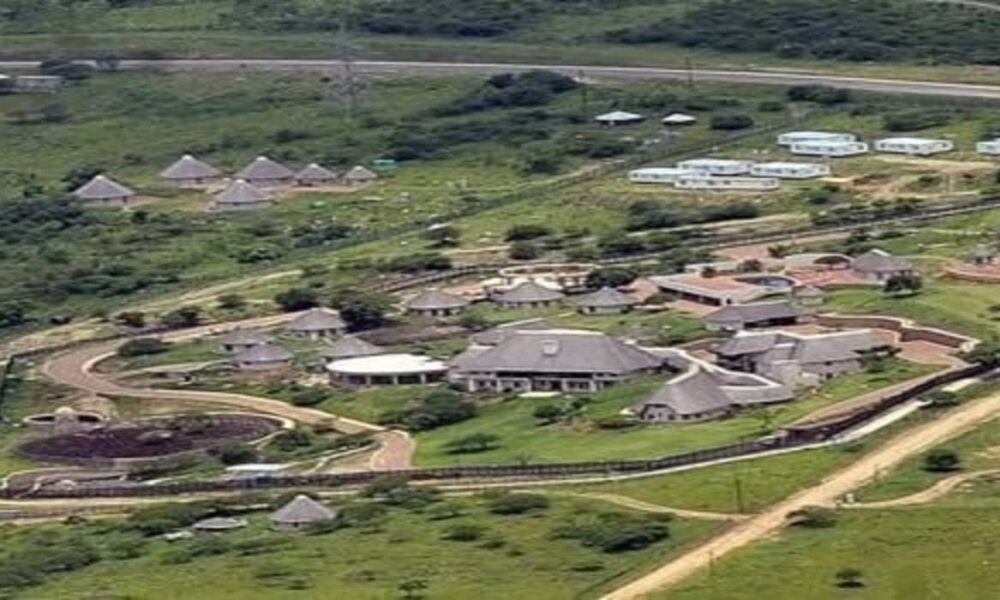KwaZulu-Natal MEC for Transport, Community Safety and Liaison, Neliswa Peggy Nkonyeni has announced that more than R2,4 billion has been budgeted for major road infrastructure projects in the Nkandla Local Municipality.
Nkonyeni unveiled the detailed plans for the nine projects, which will be implemented in phases, during a stakeholder engagement as part of her 2021/2022 post-budget meeting, at Qhudeni Library in Nkandla on Sunday.
“The Department of Transport has budgeted over R2,4 billion for capital infrastructure projects in Nkandla Local Municipality and some of those projects are at planning and design stages,” Nkonyeni said.
“One of the strategic priorities of this current administration is to build the capacity of the state to deliver. We are working hard to address all the historical organisational and systemic structural design of the department.
However, we are fast-tracking internal processes through appointing multi–disciplinary professional teams in the construction industry through the Turnkey approach. The Department will also resuscitate the Contract Management Unit as part of improving service delivery,” she said.
Upgrading of P16-2 (Kranskop to Jameson’s Drift) which is a 55,6km stretch and will cost over R827 million. To-date 6,9 km has been surfaced during phase 1 and the construction of 27,3km will be advertised. The procurement process is anticipated to be finalised in September 2021.
5Upgrading of P16-3 (Qhudeni to Silutshana) which is a 44,8km stretch and will cost over R675 million. To-date 11km has been surfaced during phase 1. The Department has awarded the supplier for the construction of 5.6 km of phase 2 however, the construction on site was affected by the appearance of rocks. A request for additional funding has been submitted to KwaZulu-Natal Treasury for approval and anticipate to continue construction work in July 2021.
Phase 3 for the construction of 28.50km will be advertised. The procurement process is anticipated to be finalised in November 2021.
Upgrading of P90 (Nkandla to Qhudeni Forest) which is a 28km stretch and will cost more than R900 million. The Department has tasked its internal team to start with designs of the road and the maintenance of the road will be prioritized.
Upgrading of P707 (Manzamnyama to Corriedale) which is a 26,24km stretch and will cost over R439 million. The design of the road has commenced using the Department’s internal team.
Upgrading of P706 (Ntolwane to Jameson’s Drift) which is a 33km stretch and will cost over R558 million. The current phase of construction is between 0,00km to 6,20km and will be complete in the 2022/2023 financial year.
The next Phase of the 26.8km stretch will be advertised, and the procurement process is anticipated to be finalized by April 2023.
New Bridge Construction of Mhlathuze River Vehicle (D2238) which will cost over R39 million. The project is in the construction stage and it is anticipated that the bridge will be fully completed in the 2022/2023 financial year.
New Bridge Construction of Mhlathuze River Bridge (P223) which will cost over R27 million. The project is in the construction stage, and it is anticipated that the bridge will be fully completed in the 2022/2023 financial year.
The department also outlined the maintenance projects including re-gravelling, blading and pothole patching that are planned for Nkandla.
Nkonyeni said the planned infrastructure projects in Nkandla were “very important” for job creation.
“We are fully committed to job creation and empowering local contractors. Projects that the department will be implementing in Nkandla must empower the local community particularly youth, women, people with disabilities and military veterans,” she said.
“We must create job opportunities and ensure skills development. Public-private partnerships are also critical to the success of our province, so we must work together to create jobs. The private sector and traditional leaders are an essential part of the conversation.
Rural and township communities should be beneficiaries through various employment opportunities, training and sub-contracting opportunities,” said MEC Nkonyeni.
